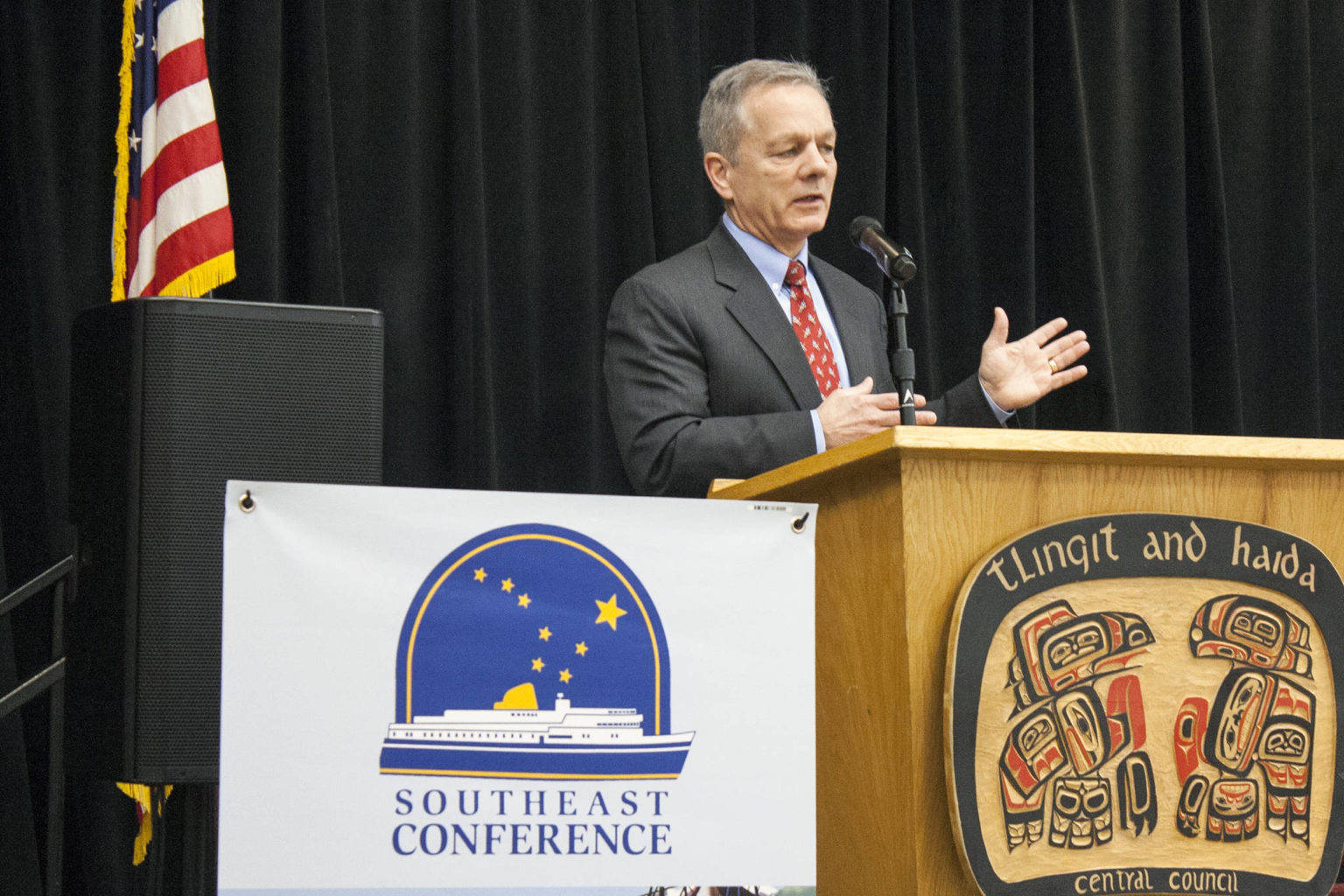The governor’s office is creating a list of shovel-ready infrastructure projects across the state it hopes to submit to the Legislature and be sent before voters in a bond package early next year, said the governor’s chief of staff Ben Stevens. Speaking to the Greater Juneau Chamber of Commerce Thursday, Stevens said the projects are to be equally distributed across the state and will include various types of projects, from new construction to deferred maintenance.
“Hopefully, the Legislature will embrace that concept and put it to the vote of the people,” Stevens said.
Gov. Mike Dunleavy’s proposed budget for the 2022 fiscal year on Dec. 11 included $300-$350 million in bonds. The governor’s budget was exceptionally difficult to create this year, Stevens said, because of massive disruption caused by COVID-19. The governor’s budget proposals are meant to reinvigorate Alaska’s economy and infrastructure projects are part of that, he said.
Stevens was asked about the Cascade Point ferry terminal project and the Juneau Access Road, and whether those projects were considered shovel-ready by the state. Stevens said he couldn’t speak to those projects specifically, but that the governor’s office was looking at a range of options.
“There’s no question long-term maintenance on a road is different than the ferries,” Stevens said.
The governor’s office said it wanted to consider options for the ferry presented by the Alaska Marine Highway Reshaping Work Group that met over the summer and released its recommendations in October.
“We’ve done our best to understand what Alaskans want from the ferries, not DOT, not the employees,” Stevens said.
The Legislature will ultimately determine which projects are sent before voters for bonds, according to state law.
But Gov. Mike Dunleavy is also trying to bring long-term stability to Alaska’s finances, Stevens said, and would be introducing three constitutional amendments that would do that.
[Reshaping recommendations roil stakeholders]
“These amendments are really the foundation of his long-term fiscal plan,” he said.
This will be the first year that earnings from the Permanent Fund exceed revenue from other sources like oil and corporate taxes, Stevens said. The debate over how much of those earnings should be spent on state services versus Permanent Fund Dividends had been debated for many years, Stevens said, and some felt it needed to be resolved before the state’s other needs can be properly addressed.
“There is significant change (to state spending) which has been debated for many years, and many people believe it needs to be resolved,” Stevens said. “We have to solve the fiscal problem first.”
The governor’s office will also propose a supplemental budget including projects left unaddressed when the Legislature adjourned early due to the coronavirus pandemic, Stevens said. Additionally, the governor’s office will ask lawmakers to approve a supplemental Permanent Fund Dividend of $1,916 for the 2021 fiscal year and a separate request for $3,056 for next year.
At this time the governor’s office would typically be in negotiations with legislative leadership, Stevens said, but because neither the Alaska Senate or House of Representatives have organized yet, there’s no one for the administration to negotiate with.
The governor’s list of proposed infrastructure projects is not yet public, Stevens said, and would be submitted to the new Legislature in January.
• Contact reporter Peter Segall at psegall@juneauempire.com. Follow him on Twitter at @SegallJnuEmpire.

